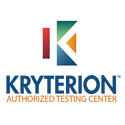Certified Incident Handler – ECIH
About This Course
EC-Council (International Council of E-commerce Consultants) is a leading cybersecurity technical certification authority across the globe. Known all over for its professional certifications in IT and cybersecurity including programming, disaster recovery, e-Business and others, certifications from EC-Council enjoy global acceptance and recognition.
EC-Council Certified Incident Handler (ECIH) certification provides candidates with industry relevant recognition as risk administrator, incident handler, forensic investigator, penetration tester, etc. The course is designed to offer necessary skills to respond and handle to cybersecurity incidents.
The certification covers a range of critical concepts and principles to help detect and respond to emerging as well as current cybersecurity or computer security threats/vulnerabilities. Professionals will be trained to handle several types of cyber incidents, policies and laws pertaining to incident handling and risk assessment.
Who Should Attend This Course
ECIH certification is perfect for:
- Incident handlers
- Risk assessment admins
- Penetration testers
- Cyber forensic experts
- System admins
- Firewall admins
- IT and network managers
And anyone, who has a penchant for incident response and handling.
Why This Course
The ECIH certification will prepare candidates to be skilled to handle and respond to several cyber security incidents such as insider threats, malicious code threats and network security vulnerabilities. Moreover, professionals will learn cyber forensics as well as its role to handle and respond to cyber incidents. The certification also includes training on training methods and techniques for incident response and handling. Most importantly, the ECIH course bestows the candidates with greater industry recognition as an expert incident handler.
Also, the course opens up the doors for a range of advanced cybersecurity professions such as:
- Firewall admin
- Cyber forensic investigator
- Penetration tester
- Incident responder and handler
Course Objectives
The coursework will help you:
- Prep up for ECIH exam
- Handle and manage different types of computer security incidents
- Perform risk assessment principles
Understand the various policies and laws pertaining to incident handling and response.
Course Prerequisites
EC-Council suggests the candidates enrolling for the ECIH course to have at least one year of prior experience in managing Linux/Unix/Windows operating systems or equivalent skills. In addition, basic understanding of security and networking is like cherry on cake.
Course Benefits
The course entitles you to the following benefits:
- Learn skills for becoming incident security expert
- Understanding of incident handling and response
- Learn to analyze risks and perform risk assessment methodologies
- Learn about various security protocols and policies.





























